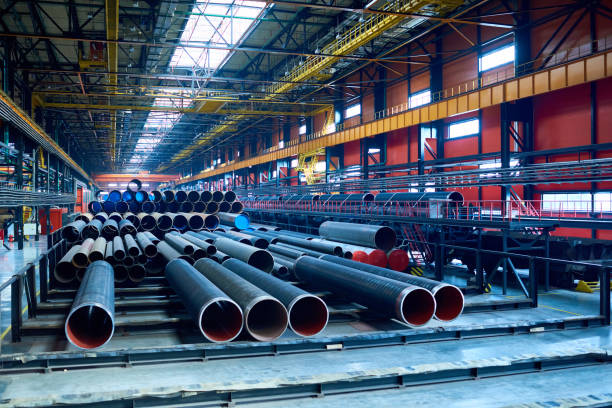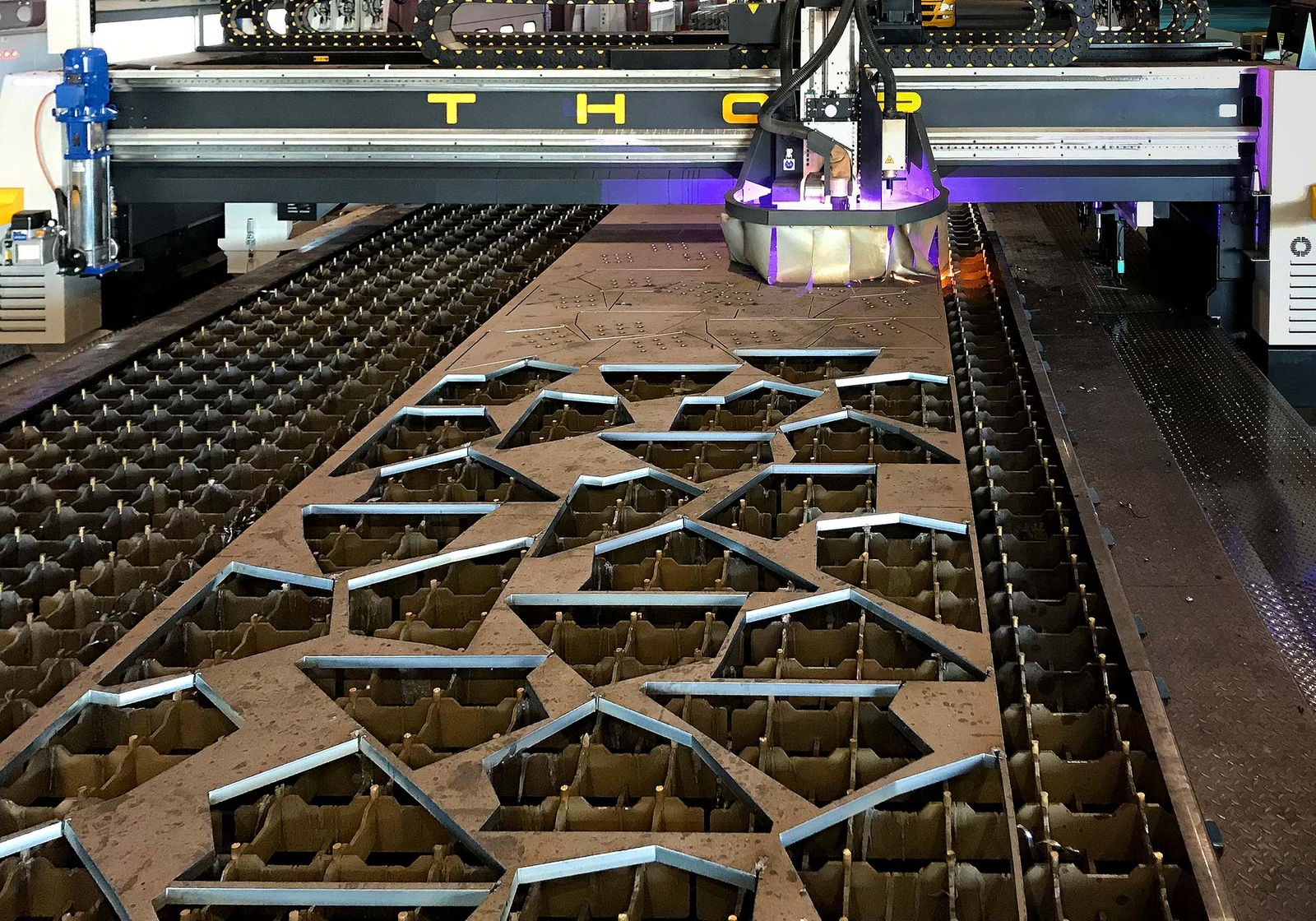The Ultimate Manual on Custom Steel Construction Solutions for Structural Projects
In the world of structural tasks, the significance of custom-made steel fabrication services can not be overstated. From the foundational understanding of steel manufacture basics to the complex procedure of selecting the most appropriate products, every step in this journey plays an essential role in the utmost success of a task. As we browse via the intricacies of design considerations, construction procedures, and quality assurance steps, an extensive manual acts as a guiding light for professionals seeking quality in steel fabrication options. Keep tuned to reveal the understandings that can transform the method architectural tasks are approached and executed.
Understanding Personalized Steel Fabrication Essentials
Exploring the basics of personalized steel fabrication offers understanding into the detailed process of changing raw steel into tailored structural elements. Personalized steel construction is a customized production method that involves cutting, shaping, and putting together steel materials to produce distinct frameworks according to details project requirements. Comprehending the fundamentals of custom-made steel construction is essential for guaranteeing the successful execution of structural tasks.
The process normally begins with the assessment of project specifications and style demands. This initial stage includes detailed preparation and partnership in between engineers, producers, and designers to identify one of the most appropriate strategy for producing the steel parts. Accuracy is key throughout the manufacture procedure, as even small deviations can affect the architectural integrity of the end product.
Numerous strategies, such as cutting, welding, and shaping, are employed to transform raw steel into the wanted structural aspects. Knowledgeable fabricators make use of sophisticated machinery and devices to make sure accuracy and consistency throughout the fabrication procedure. Quality assurance procedures are executed to verify the honesty of the produced parts prior to they are assembled on-site, making certain compliance with industry requirements and project requirements.
Selecting the Right Steel Products

Most importantly, the kind of architectural project and its specific demands play a critical duty in identifying the most suitable steel products. Factors such as the load-bearing capacity, ecological problems, and preferred life-span of the framework will determine the quality and sort of steel that must be made use of.
Furthermore, the physical residential or commercial properties of the steel, including weldability, strength, and ductility, must align with the task's requirements to ensure optimal efficiency and sturdiness (metal fabrication melbourne). Additionally, considerations such as corrosion resistance, cost-effectiveness, and accessibility of the steel materials ought to likewise be thought about during the selection process
Style Considerations for Architectural Jobs
Architectural jobs require thorough focus to develop factors to consider to make certain both performance and safety and security are prioritized throughout the building process. When it comes to making structural jobs, a number of essential factors should be taken into account to assure the success of the undertaking. By meticulously taking into consideration these facets during the layout phase, designers and designers can make certain the structural job's success from perception to completion.
Simplifying Fabrication Procedures for Efficiency

Moreover, executing lean production concepts can significantly improve performance in steel manufacture. By lessening waste, optimizing operations, and enhancing interaction in between different groups associated with the construction process, jobs can be finished extra swiftly and with higher high quality criteria.
Moreover, developing a well-organized production routine and directory process can assist in focusing on jobs, designating sources successfully, and conference project deadlines promptly. By having a clear plan in position and on a regular basis keeping track of development, any kind of possible bottlenecks or delays can be recognized and dealt with quickly, guaranteeing smooth and efficient manufacture procedures for architectural tasks.
Quality Assurance and Project Administration in Steel Construction
To make certain the effective execution of steel manufacture tasks, careful quality assurance actions and effective task administration practices are vital parts in preserving precision and conference customer assumptions. Quality assurance in steel fabrication entails rigorous inspections at different stages of the manufacture procedure to verify compliance with job specifications and sector standards. This consists of material testing, dimensional checks, and weld examinations to ensure structural stability and safety and security.
Job monitoring plays an important function in coordinating the different aspects of steel fabrication projects, such as scheduling, source appropriation, and interaction among employee. A well-defined job plan with clear objectives, turning points, and timelines aids to monitor progress and attend to any type of possible problems proactively. Reliable interaction in between all stakeholders, including clients, producers, engineers, and professionals, is important for ensuring that the project progresses efficiently and satisfies the preferred high quality standards.
Verdict
Finally, customized steel fabrication plays a crucial function in architectural jobs by giving tailored solutions utilizing the right products and layout factors to consider. Efficiency in manufacture processes, quality control, and effective job management are necessary for successful end results. By recognizing the basics of custom steel manufacture and applying streamlined processes, task teams can supply resilient and high-quality structures that meet the certain demands of their clients.
Custom-made steel manufacture is website link a specialized manufacturing method that involves cutting, shaping, and constructing steel products to develop unique structures according to specific project requirements.To ensure the successful execution of steel fabrication tasks, precise high quality control steps and efficient job administration methods are necessary elements in maintaining accuracy and meeting client expectations. Quality control in steel fabrication involves rigorous assessments at various stages of the fabrication process to confirm compliance with job specifications and industry requirements (metal fabrication melbourne).Job monitoring plays an important function in working with the numerous facets of steel fabrication jobs, such as organizing, resource appropriation, important link and communication amongst team participants.In conclusion, custom steel manufacture plays an essential function in architectural tasks by offering tailored services making use of the appropriate materials and design factors to consider